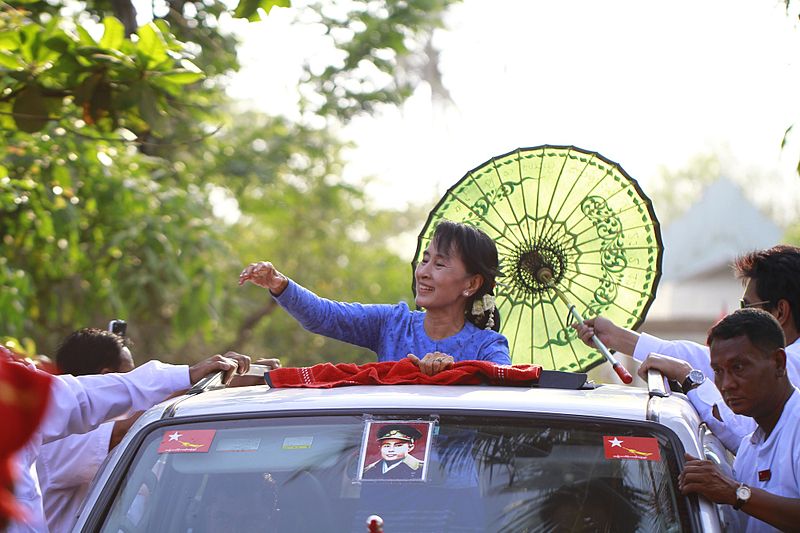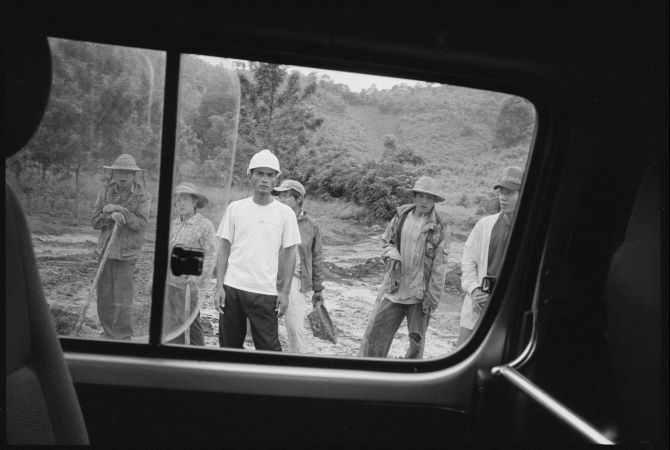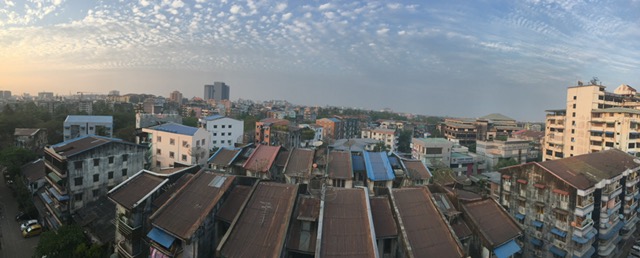
RANGOON, Burma—Burma’s government, struggling to handle accusations of ethnic cleansing over its treatment of Rohingya Muslims, is contemplating legislation that would seek greater oversight of the work of international nongovernmental organizations, including the United Nations, prompting concerns of a crackdown on their activities.
The Draft Law on International Non-Governmental Organizations, a copy of which was reviewed by The Washington Post, contains a vague definition of the groups it would regulate, proposes monitoring of aid groups’ work by Burmese staff and provides the affected organizations with few safeguards against the government suspending their work. This has led some groups to fear it could be used to restrict their work in Burma, which is also known as Myanmar.
The proposed law comes at a time of a wider crackdown on democratic freedoms under Nobel laureate Aung San Suu Kyi and her government, as they struggle to deal with the fallout of military operations that have sent nearly 700,000 Rohingya fleeing over the border to Bangladesh since August.
“The stated purpose of the law allows government to suppress activities they do not favor and undermines the efforts in advancing democracy and human rights,” according to a February presentation reviewed by The Post from the INGO Forum, a coalition of dozens of aid groups operating in Burma.
Representatives from international aid groups and diplomats are lobbying members of the parliamentary committee reviewing the draft to change the wording or to have it withdrawn. It was unclear whether the law would move past the commission or what provisions the final version would include.
It was also unclear who wrote the draft or if it was done at the direction of the president or state counselor’s office. Zaw Htay, a spokesman for the government, directed questions on the draft law to the Ministry of Planning and Finance. A deputy minister from the ministry did not respond to requests for comment.
Tin Maung Oo, a member of the commission that is working on the legislation, said the group was consulting with ministries, representatives from nongovernmental groups and experts.
He said that international aid groups were doing important work and that the government would like them to “flourish” but that a law was needed to oversee their work.
Critics warn that such laws are part of a disturbing trend in the region.
“Across Southeast Asia, a raft of laws, policies and practices over the last year have made it clear that the space for civil society and critical speech is shrinking,” said Richard Weir, a researcher for Human Rights Watch’s Asia division. “This trend is particularly pronounced in Myanmar, where the space for civil society was rapidly opened in 2011 and has shrunk since the National League for Democracy rose to power in 2016.”
Suu Kyi’s National League for Democracy, or NLD, government has also proposed amendments to the country’s protest law, including one that seeks to impose prison terms on those whose demonstrations could harm the “security, rule of law and stability of the state.”
In early March, hundreds of demonstrators marched through downtown Rangoon to protest the proposed changes, standing for a time in front of a massive portrait of Suu Kyi.
Two days later, the amendments were approved by the NLD-dominated upper house of parliament. The amendments are now in the lower house of parliament, where the NLD also holds a majority of seats.
A Western diplomat in Rangoon, who spoke on the condition of anonymity because he was not authorized to speak to the news media, said the revised protest law and the draft law on nongovernmental groups were “the first two active steps [they] have seen by the NLD to make Myanmar less democratic.”
International nonprofit groups have noted a wider pushback against their work as the government makes it more difficult to get visas and travel authorizations. Some attendees at the February meeting of the INGO Forum believed the draft law could “be a precursor to further restrictions of civil space, as has happened in some other countries,” according to meeting minutes reviewed by The Post.
An especially troublesome section of the draft law mandates that Burmese citizens working for an international nongovernmental group report “cooperation” with the law to the government, adding an additional layer of monitoring that could erode trust and have a negative impact on partner agreements, according to the INGO Forum presentation.
In an analysis of the draft legislation, the Washington-based International Center for Not-for-Profit Law wrote that it “cannot find comparative examples in other laws.”
According to Tin Maung Oo, the draft law would apply to the work of the United Nations in Burma. The government has blocked a U.N. fact-finding mission from entering Burma, barred its human rights investigator and denounced the United Nations’ statements on Burma’s treatment of Rohingya Muslims, which it has labeled a “textbook example of ethnic cleansing.”
Criticism of the United Nations and aid groups is particularly pronounced in Rakhine state, where ethnic Rakhine Buddhists have long accused them of favoritism toward the Rohingya.
It is unclear whether the government would be able to apply the law to the United Nations and its work in Burma. Stanislav Saling, spokesman for the Office of the U.N. Resident and Humanitarian Coordinator in Burma, said the country is already a signatory to “international conventions and agreements” that govern the United Nations’ work in the country.
But U.N. agencies implement many of their programs through nongovernmental groups, which could be affected by the law.
“The U.N. and other development cooperation partners have expressed concern that some of the provisions in the current draft of the law are arbitrary and excessive, and could restrict the ability of INGOs to play their important humanitarian and development role,” Saling said.
“We believe it will neither help government to regulate and manage INGOs, nor help INGOs to operate effectively, efficiently, transparently or accountably,” he added.
Beyond the newly proposed legislation, the NLD-led government has also continued punitive use of existing laws, such as the controversial Telecommunications Law, a piece of legislation signed by the previous government and often used to criminalize criticism of authorities.
The law was amended last year—reducing possible prison terms and narrowing those who could be charged—but fell well short of the full repeal demanded by activists. Free-speech advocacy group Free Expression Myanmar found that nine criminal complaints were filed between August 2017, when the bill was amended, and November 2017.
“They just amended article 66(d) to save appearances,” said Maung Saungkha, an activist and poet who was jailed for six months by the previous government under the law, referring to an article of the law. “They want to control free speech just as the previous government did.”

Education Resource
A Changing Climate for Reporting in Burma
Journalist Jeff Howe shares his experiences reporting in Burma with photographer Gary Knight. As...






